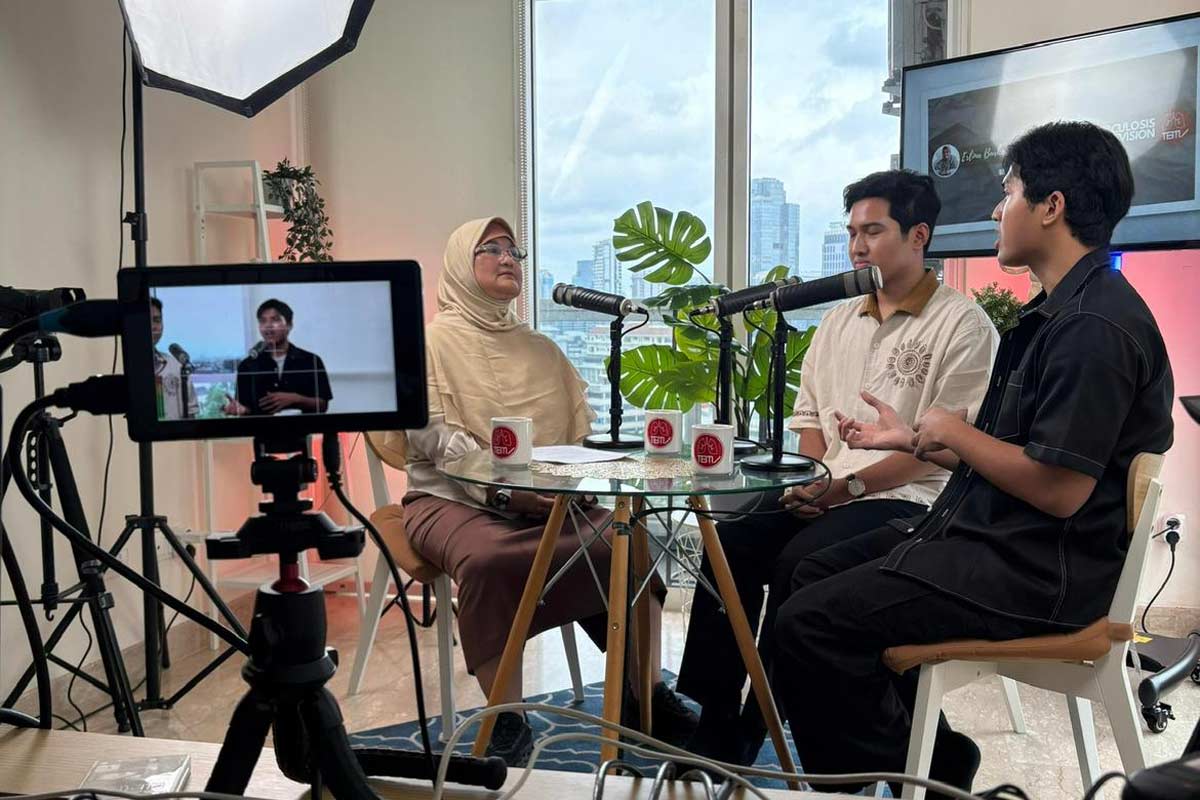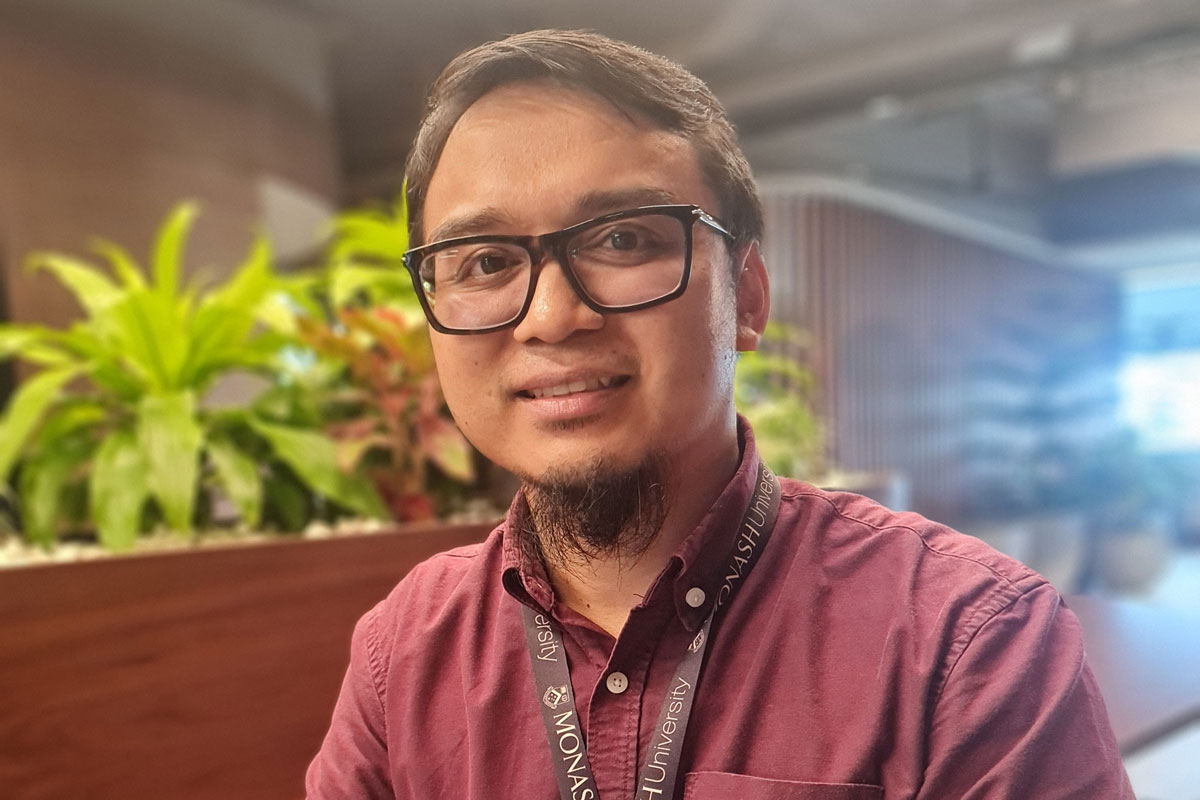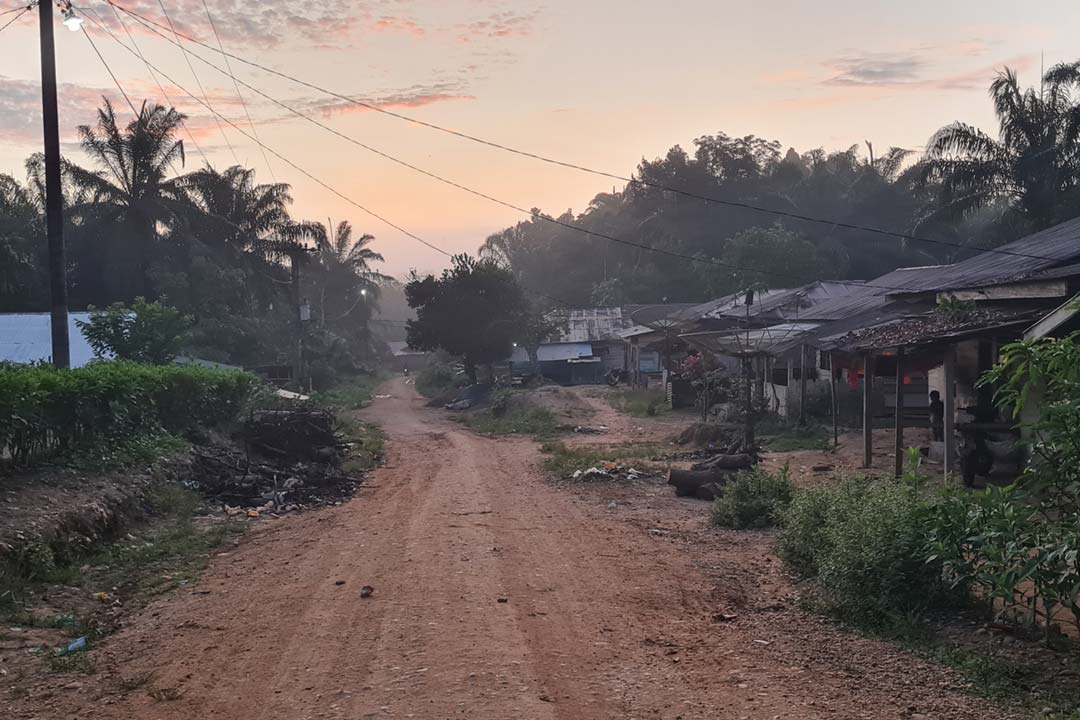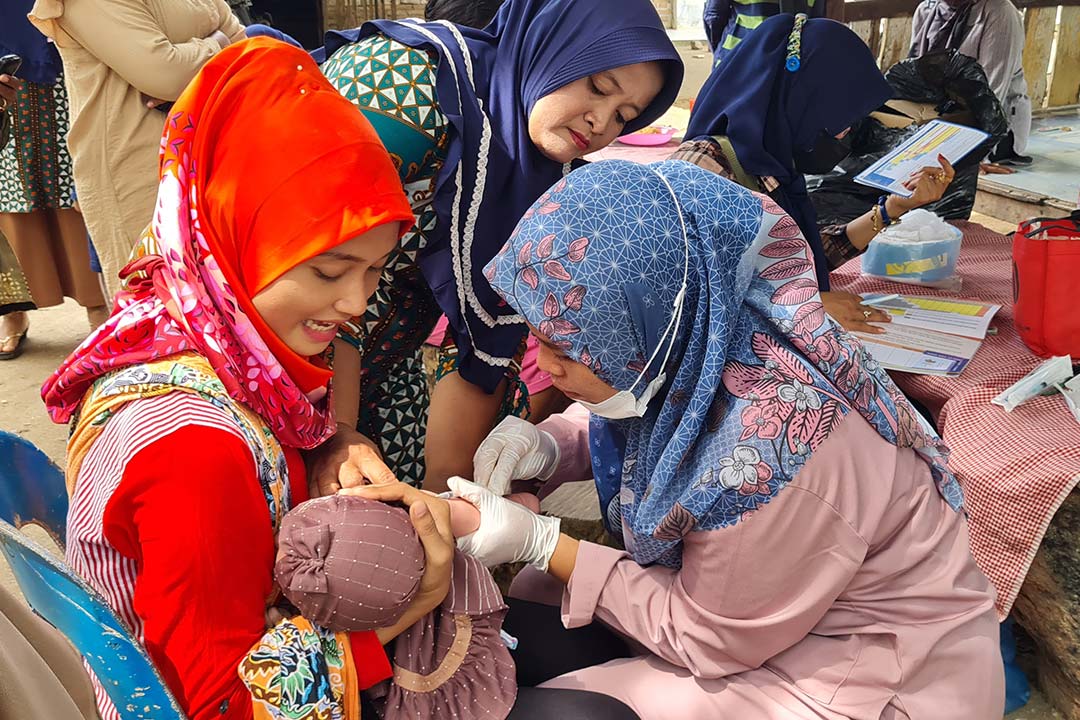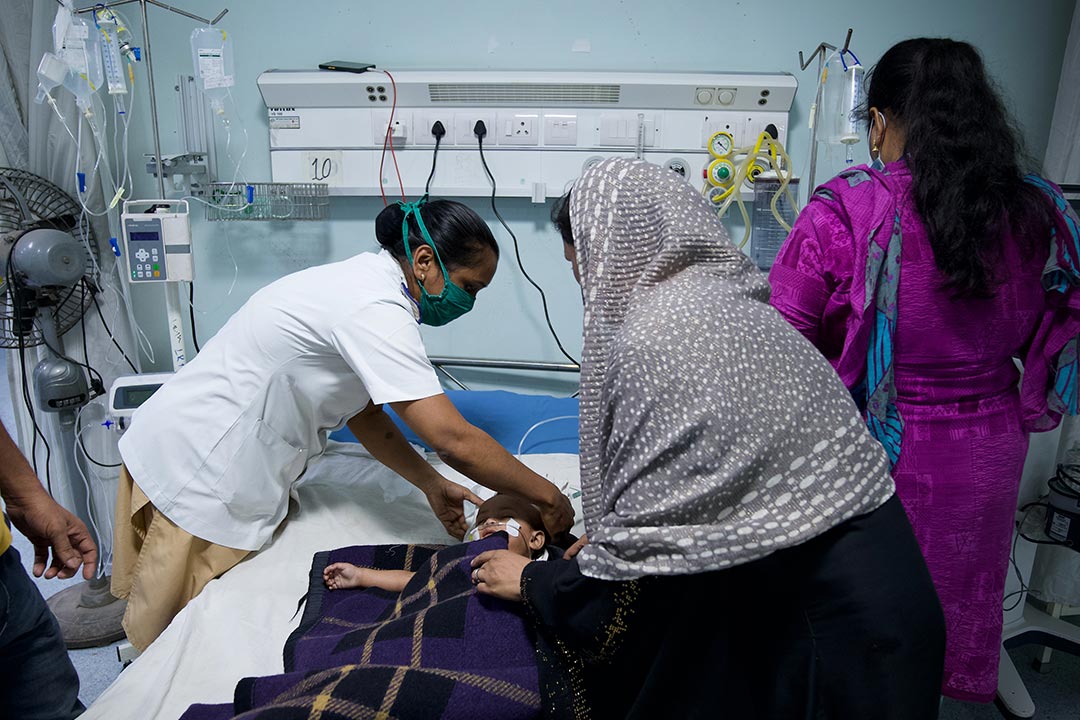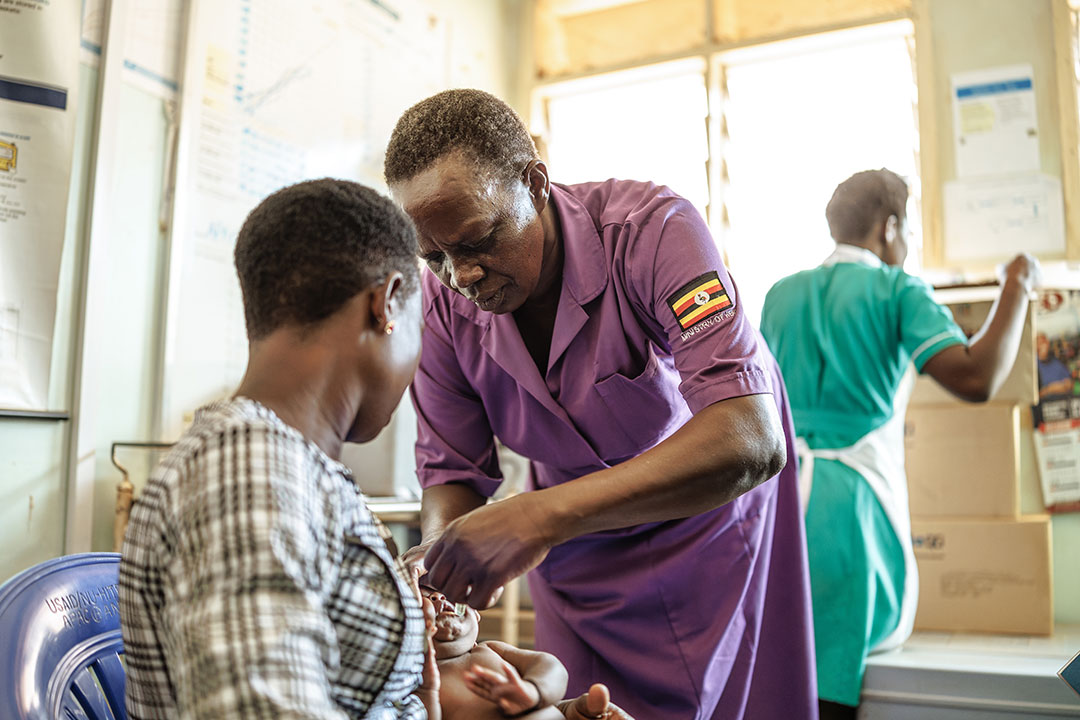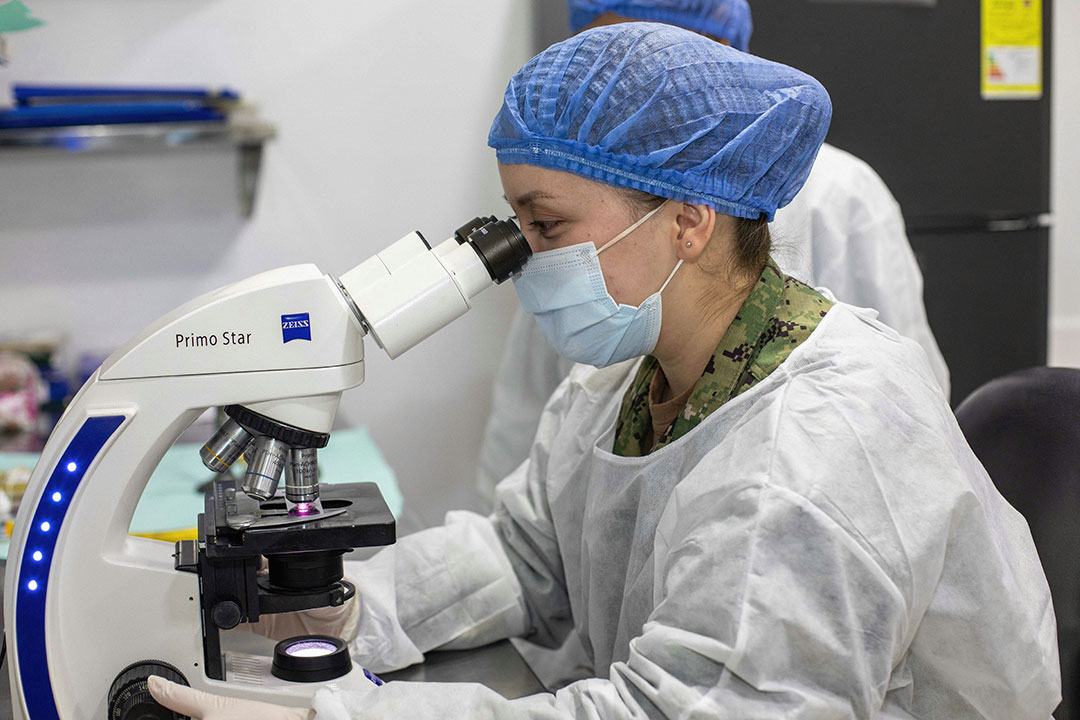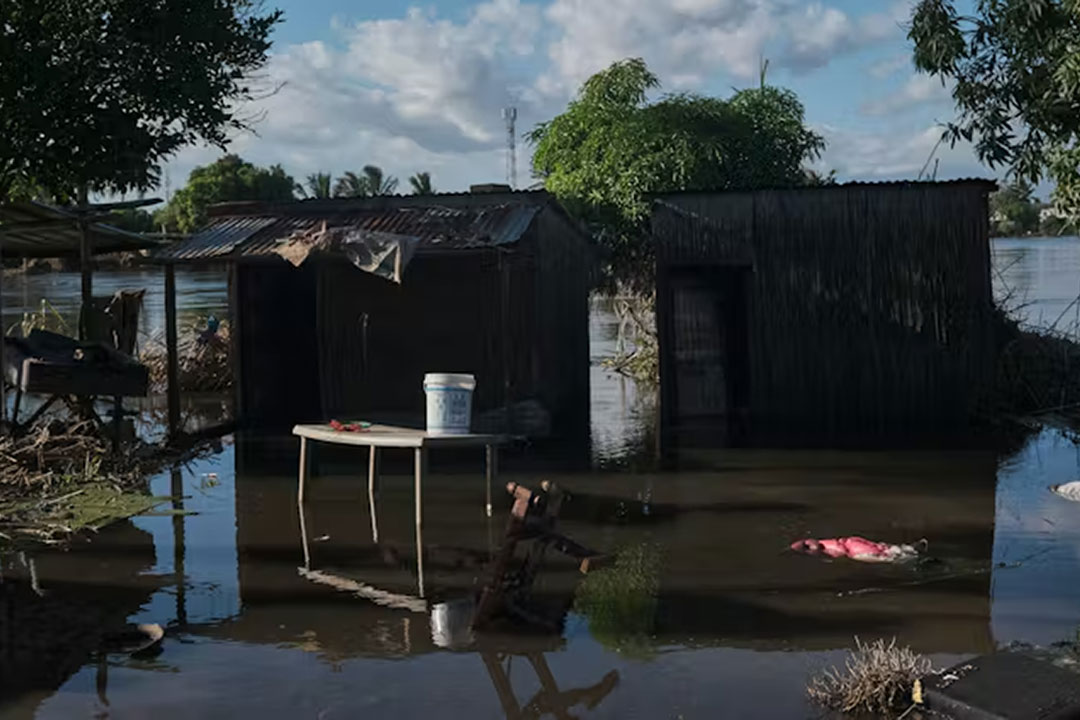What is a puskesmas and how are they spearheading Indonesia’s measles vaccinations?
The puskesmas is at the heart of health care for the poor and those in remote areas in Indonesia.
- 27 June 2022
- 4 min read
- by Dyna Rochmyaningsih
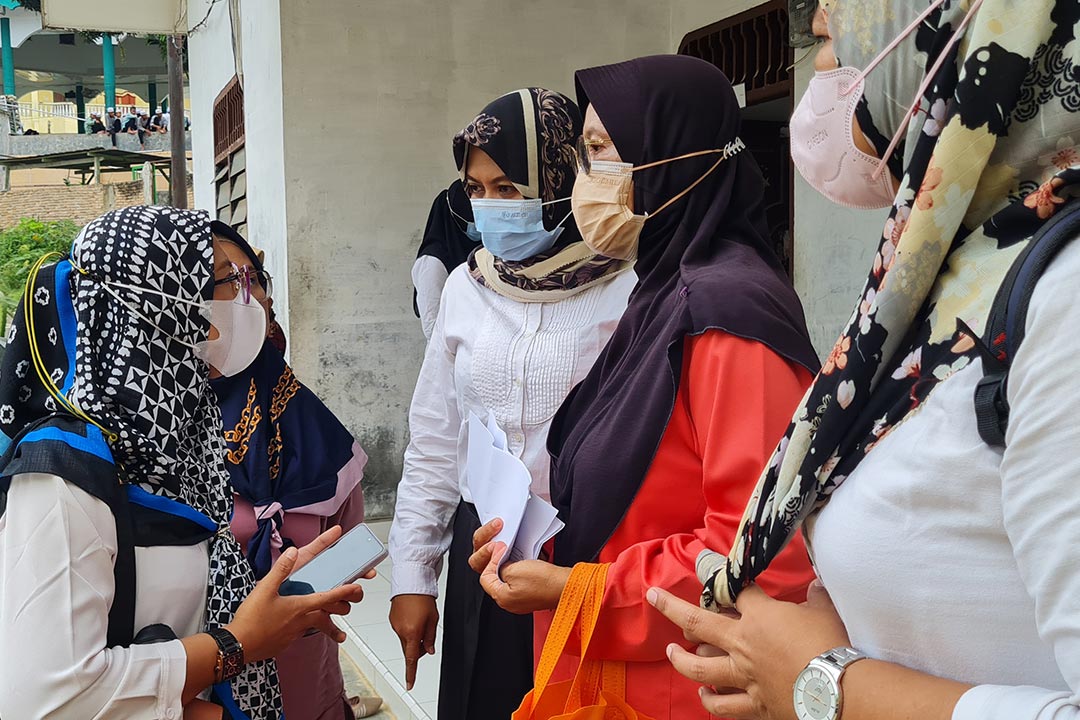
Rusiati, a middle-aged woman from Galang, North Sumatra, was in a rush. Two young doctors and two midwives were waiting for her downstairs but she first needed to deal with some paperwork in her office before she could meet them.
Rusiati is the Coordinator of Vaccination Programme in Galang’s Community Health Centre, known locally as ‘puskesmas’. The team could not go without her.
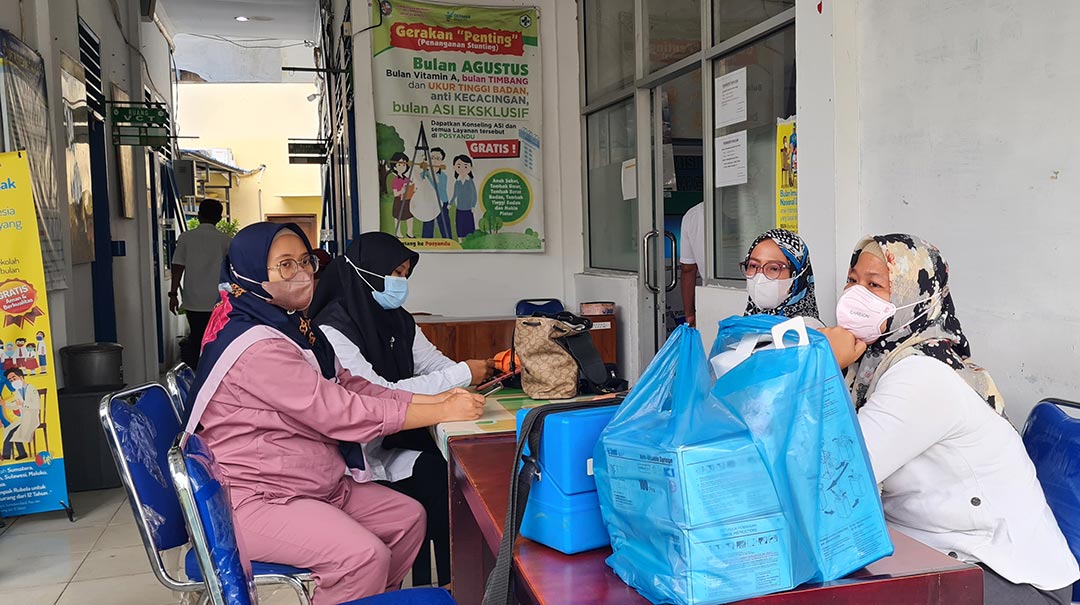
Credit: Dyna Rochmyaningsih
“All ready?” said Rusiati as she finally walked downstairs. “We’ll go to Pesantren Qomariyah,” she added, referring to an Islamic boarding school in Galang. The team, all women, quickly left their table and hopped on to their motorcycles.
“The Puskesmas workers in Galang are good people to work with. They are fast and reliable. With their work ethic, I am optimistic that we will meet whatever targets are set for us.”
It has been a busy period for staff at Galang’s puskesmas. Starting on 23 May, they have been building awareness on the safety and urgency of measles and rubella vaccinations among parents of schoolchildren in town. It is part of Indonesia’s National Month for Child Immunisation (BIAN), a programme aimed at increasing child immunisation rates of various vaccines, including measles-rubella.
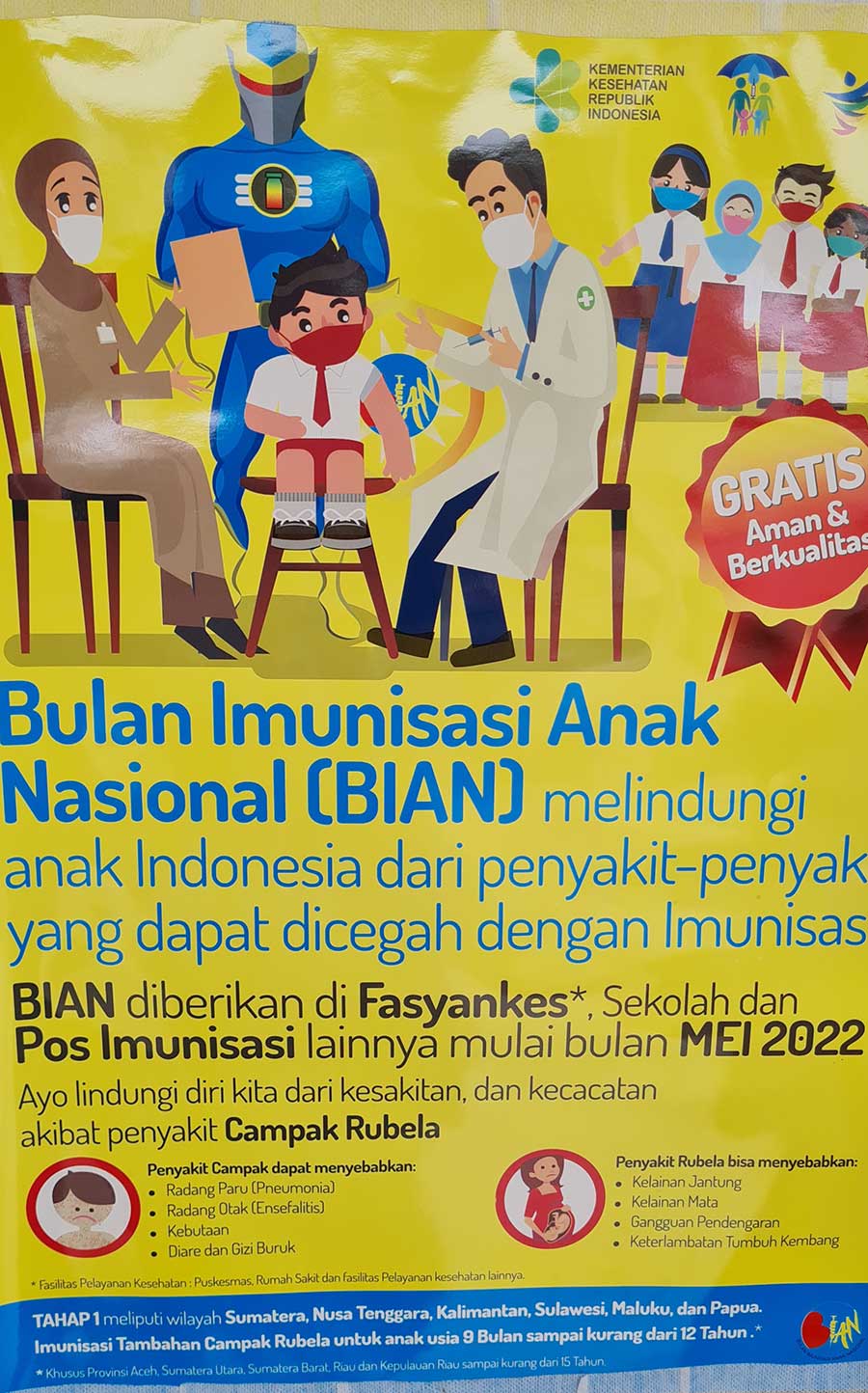
Credit: Dyna Rochmyaningsih
In 2018, the immunisation rate of measles and rubella vaccination outside Java plummeted. Vaccine coverage was 68%, while in North Sumatra the coverage was 10% below this average. This year, through BIAN campaigns, the government hopes to improve this. Health workers in the puskesmas – the spearhead of Indonesia’s public health service – are at the frontfront of this programme. Their work on the ground determines the fate of this national agenda.
Have you read?
According to the Centre for Indonesia’s Strategic and Development Initiatives (CISDI), puskesmas are often the only health solution for those who live in remote areas. In the cities, puskesmas offer affordable health services to the poor. There are currently an estimated 12,000 puskesmas across Indonesia and each of them is responsible for every health problem in their own area. They provide basic healthcare, monitor mother and baby health, track infectious diseases like COVID-19 and promote various vaccination programmes for children and adults.
Rusiati’s team arrived in Pesantren Qomariyah to find parents already waiting. Rusiati located the headmaster and made sure one of the classrooms was set up as a meeting room. Once the socialisation started, Rusiati didn’t talk much. Instead, it was the doctors, Debby and Sri Haryati, who took the lead. Both enthusiastically explained the importance of measles and rubella vaccines.
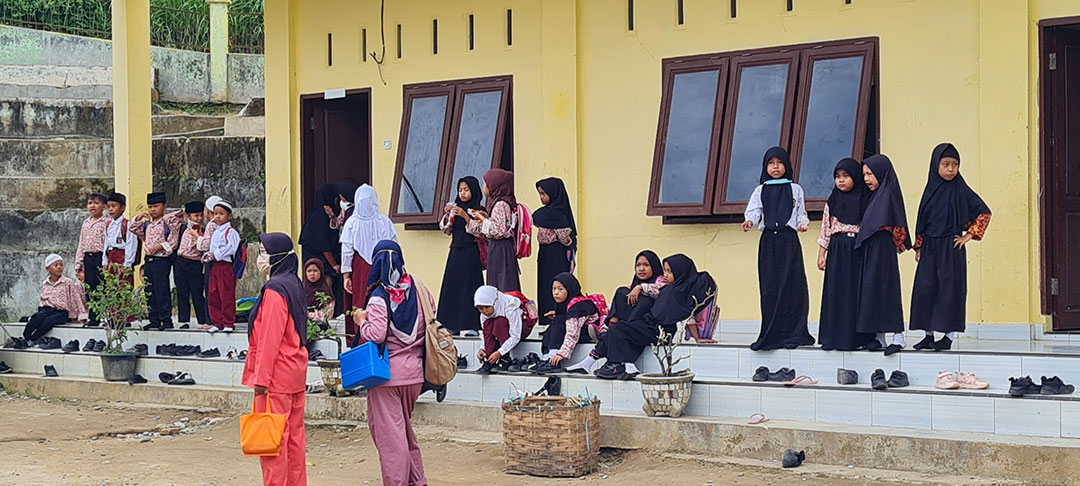
Credit: Dyna Rochmyaningsih
“It is a government programme that we all need to support. We will not force you to immunise your children. But please be assured that the vaccine is safe as it has passed through clinical trials,” says Haryati.
Arfa, a 69-year-old woman whose grandchild is a Qomariyah student, says the socialisation is helpful for her.
“I’m old already and I am not fully aware of the health issues that affect children. I am glad that the puskesmas workers reached out to us,” she says.
However, not everyone has a positive attitude like Arfa. Some are still anxious about how vaccines might affect their children’s health. This is a challenge that the puskesmas team deals every day, but this doesn’t deter the team from continuing their work.
“Sometimes we need to come to the same school twice to increase vaccination rate,” explains Sri Haryati.
It is the success stories that also inspire them to keep going.
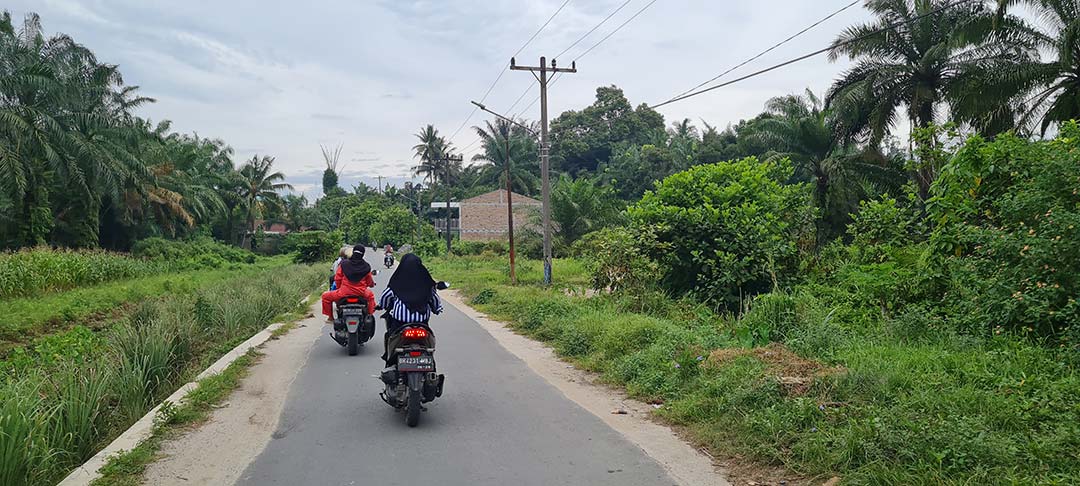
Credit: Dyna Rochmyaningsih
“A few days ago, the team visited a school of 300 students and only 15 people were willing to be vaccinated. We asked the headmaster to give us another chance to socialise the vaccine for parents. Thank God, after three meetings, the parents have finally given their consent. Around 200 students were vaccinated in the end,” says Rusiati.
Rusiati’s team is aiming to reach 95% coverage for measles-rubella vaccination in Galang. Their target is to vaccinate 13,317 children, and while that may not be an easy task, Rusiati has a team she can always count on.
In addition to the four team members that she went out with on this day, Puskesmas Galang has another 15 midwives and six doctors all available to go to the field when needed.
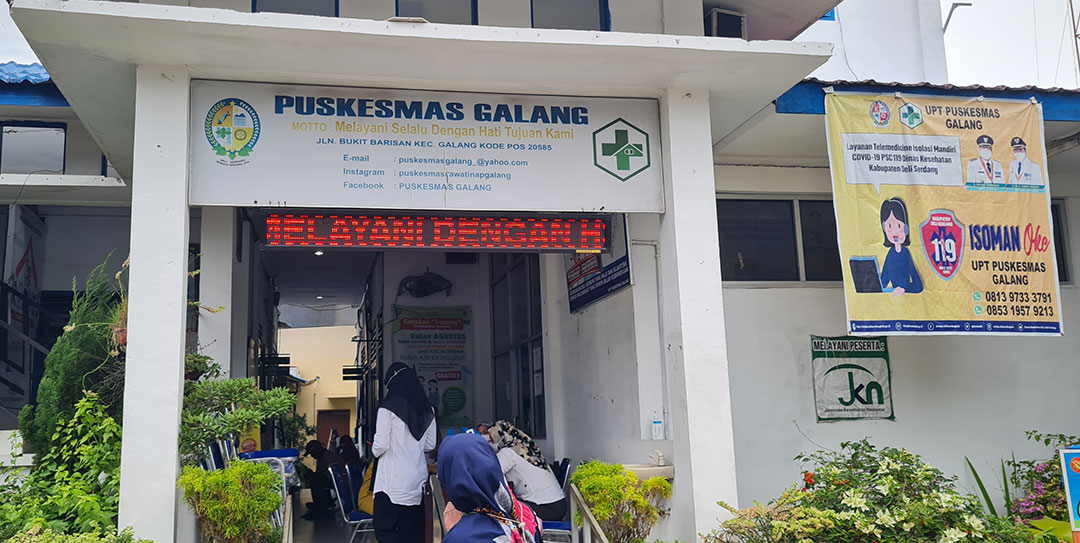
Credit: Dyna Rochmyaningsih
“The Puskesmas workers in Galang are good people to work with. They are fast and reliable. With their work ethic, I am optimistic that we will meet whatever targets are set for us,” Rusiati says.
